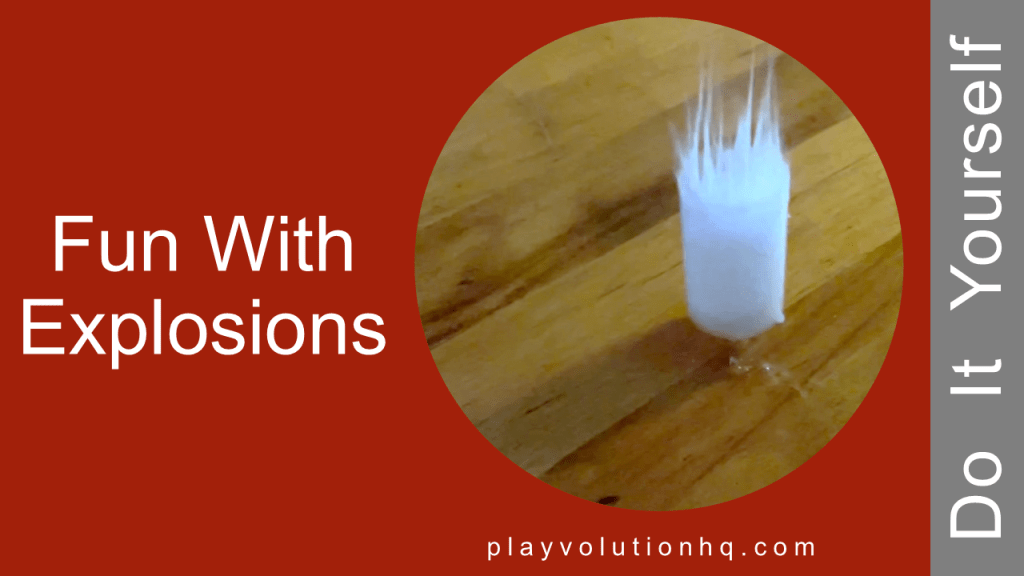
Table of Contents
Let’s have a bit of early learning fun with explosions, shall we? I’ve been making explosions like this with kids for a long time. I just calculated that the first kids I showed how to do this are now in their early 40s. I guess this is an oldie but a goodie.
Fun With Explosions Video
Here’s a quick video explaining the process outlined below:
Why Explosions?
First, the experience is a big basket of fun that kids will enjoy doing repeatedly. Beyond that, it’s a chance for hands-on learning about the physical world and an opportunity to bump up against STEM topics like:
- Chemical reactions
- Gas production
- States of matter
- Cause and effect relationships
- Setting up an experiment
- Pressure
- Containment
- Problem-solving
- Volume
- Measuring
- Observation
What’s Going On?
When an antacid tablet is dropped into water, a chemical reaction occurs between two key ingredients: sodium bicarbonate (NaHCO₃) and citric acid (C₆H₈O₇). These compounds are dry in the tablet but react when dissolved in water.
Here’s how I understand the reaction unfolds:
- Dissolving Of Citric Acid And Sodium Bicarbonate–When the tablet is dropped into water, both citric acid and sodium bicarbonate dissolve into the solution.
- Acid-Base Reaction–Once dissolved, the citric acid (an acid) and sodium bicarbonate (a base) react. The acid donates hydrogen ions (H⁺) to the bicarbonate ions (HCO₃⁻), producing carbonic acid (H₂CO₃).
- Decomposition Of Carbonic Acid–Carbonic acid is unstable and quickly breaks into water (H₂O) and carbon dioxide (CO₂) gas.
- Formation Of CO₂ Bubbles–The carbon dioxide gas is released as bubbles, causing the fizzing effect seen when the tablet is placed in water. This release of gas is the visible and audible sign of the reaction.
- Boom!–In a tightly sealed container, those CO₂ bubbles build up until they can no longer be contained.
(I spent more time in the English department than the Science department in school, so let me know if I’ve messed up on the chemical reactions.)
Some Examples
Here are some photos from a book I wrote for Redleaf Press back in the day titled Everyday Early Learning that shared this explosion-making process:
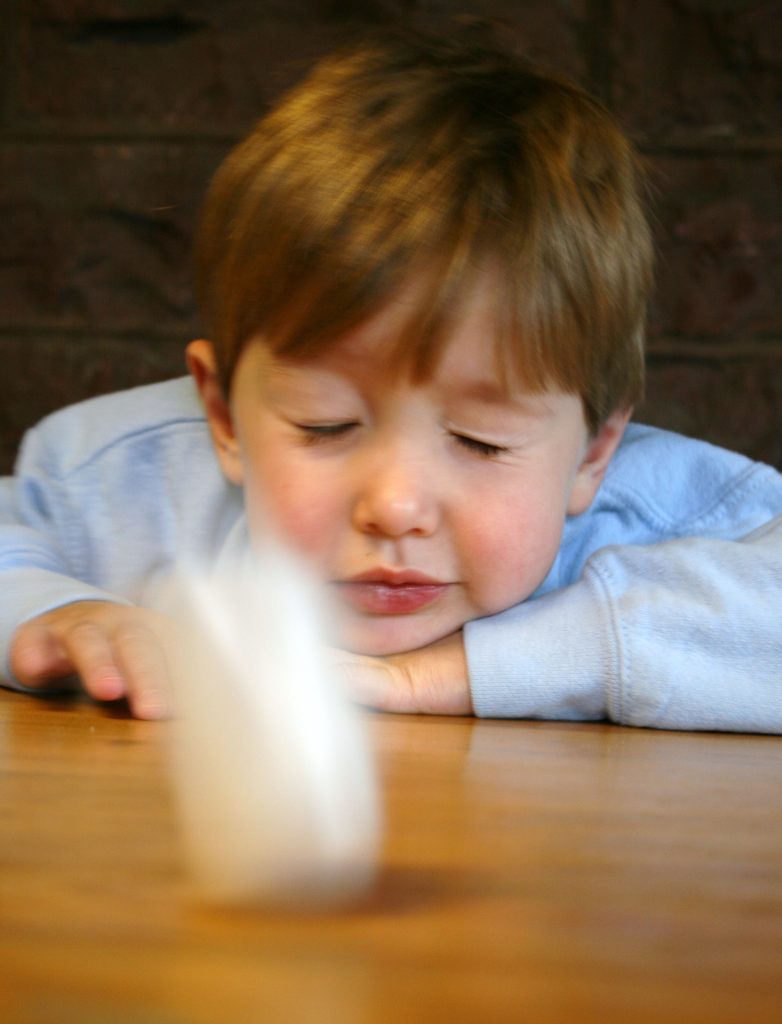
Sam flinched at each explosion but kept coming back for more.
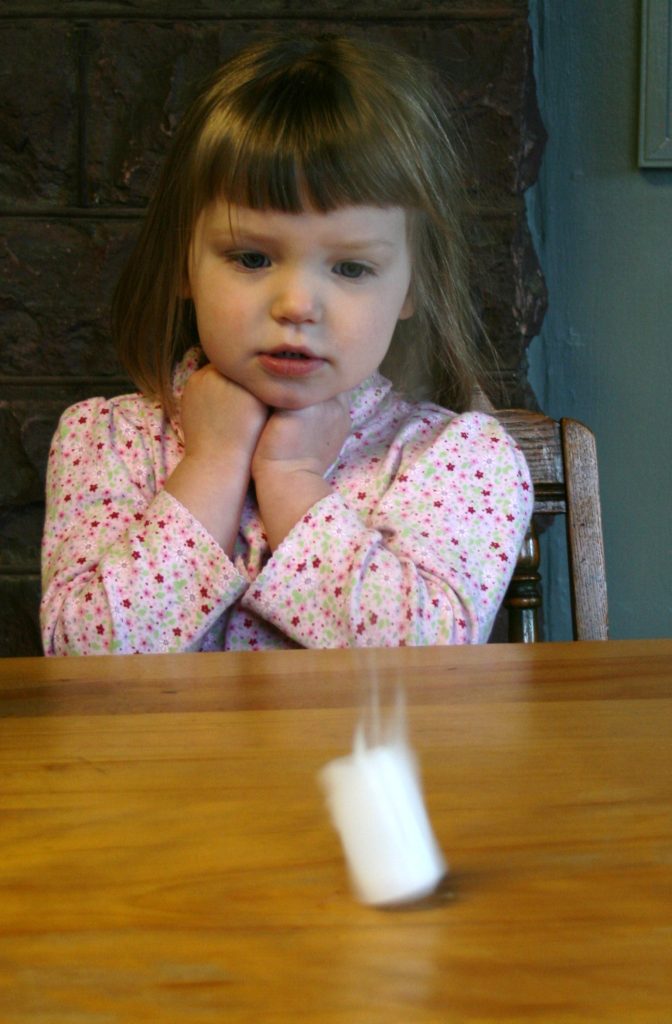
Pheobe found it to be thrilling.
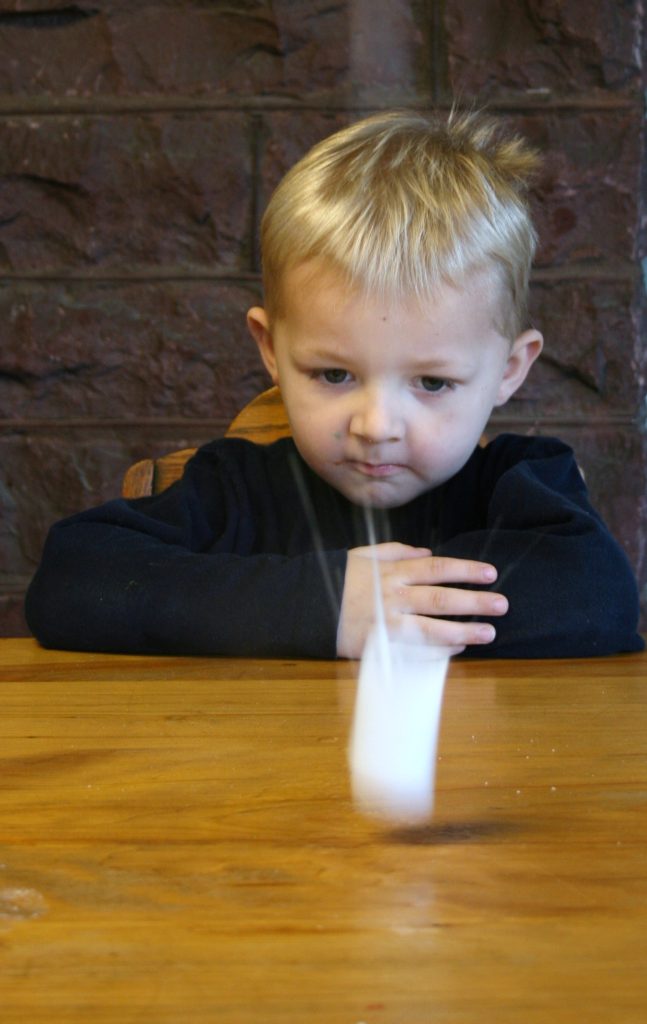
Noah was very interested in the how and why of the repeated kitchen table explosions.
Materials Needed
To get the fun with explosions started, you’ll Need:
- Antacid tablets
- 35mm Film canisters (Amazon affiliate link)
- Water
- Towels
- A pie tin or other shallow container
- Water coloring (optional)
The Basic Process
Having fun with explosions is pretty simple. Add water to the canister, drop in the tablet, snap on the lid, and wait impatiently for a few seconds.
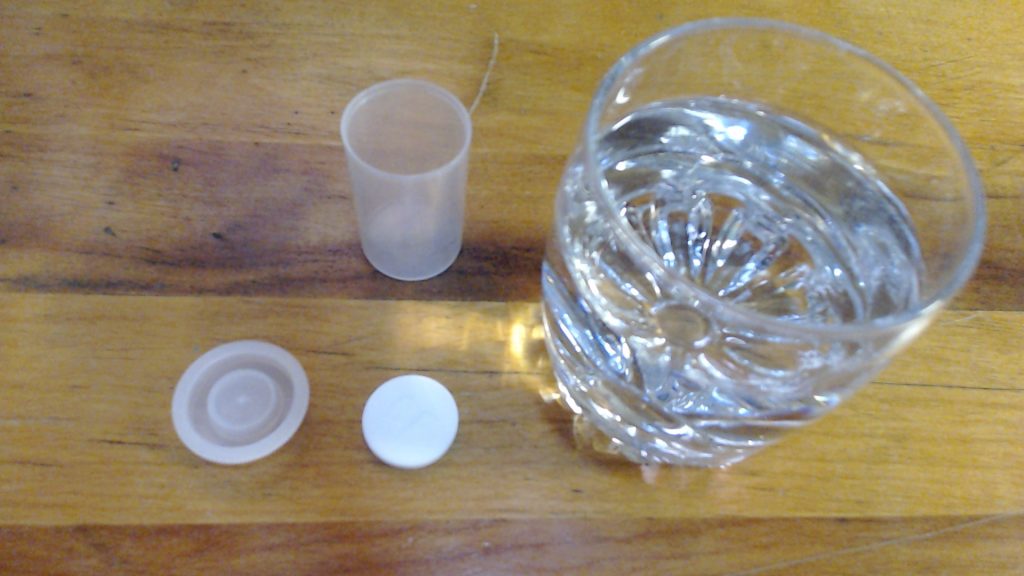
Explosion Notes
Here are some thoughts based on decades of fun with explosions:
- Lid fit is essential. If the lid does not fit tightly to the canister, the gases escape, and you don’t have any fun with explosions…just a sad fizzle. The canisters I linked to above have performed well.
- Generic store brand antacids work as well as name brand options–and they cost a lot less.
- The amount of water you add to the canister impacts the eruption time–more water means a quicker explosion. I usually fill the container 1/2 to 3/4 full.
- For safety’s sake, don’t let kids hover directly over the canister while waiting for the explosion. Getting hit in the face with a flying film canister dampens the fun.
- If you reload fast enough, you can get 2 or 3 explosions from one antacid tablet.
- You can also use tablet fragments to get more bang for your buck.
- Using a pie pan or similar shallow container as a launch pad for your explosions helps contain the mess.
- Having towels on hand is a good idea since explosions get messy.
- Lids really fly, so marking them with colored tape or a marker makes them easier to find after the explosion.
- This might seem like an outside activity, but beware that the lids may be challenging to locate after outside explosions.
- Tape measures are nice to have on hand in case kids want to track how far the canisters and lids travel during an explosion.
- You might want to experiment with setting objects on top of the film canister after snapping on the lid.
- Set the canister lid side down after snapping it shut for a bit of variety (and more mess).
- Food coloring works great for tinting the water (here’s what I use–Amazon affiliate link), but a bit of paint works fine, too.
Fun With Explosions Wrap-Up
If you made it this far, I hope you’re ready to have some fun with explosions. If you try, I’d love to hear how it goes in the comments.
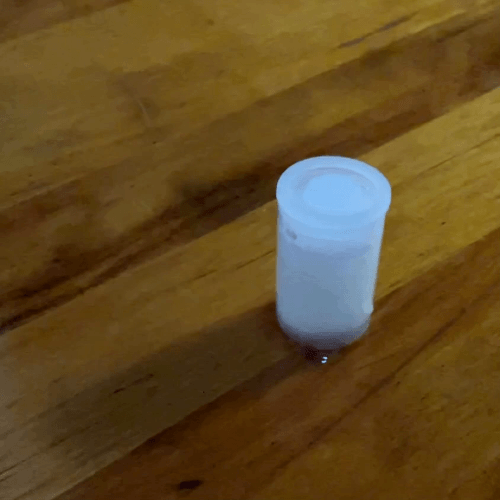
Contribute content to Playvolution HQ
Brought to you by Explorations Early Learning
Browse Trainings

Post Author
Jeff Johnson is an early learning trainer, podcaster, and author who founded Explorations Early Learning, Playvolution HQ, and Play Haven.

Leave a Reply